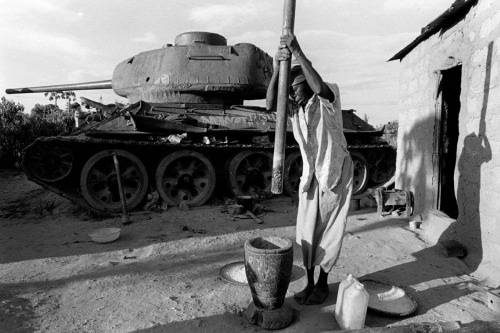Excerpts from Matthieu Ricard’s preface to Didier Ruef’s ‟Recycle”
As Didier Ruef wrote, ‟While the re-use and recovery of waste is part of everyday life in developing countries, our consumer society has turned waste into garbage, by taking away its economic value.”
I have witnessed this transformation in a country that 25 years ago had never even seen a bottle of Coca-Cola. When the first plastic bottles appeared in eastern Tibet, there was no question of discarding them. Once the drink was quickly ingested, the light airtight container, was carefully preserved. The bottles, whole or with the top part removed, were used as a drinking cup, a receptacle for milk, a butter jar, a pot to collect small objects, vases to put flowers on the altar as an offering to Buddha or to protect objects from the weather, etc. If by chance a few not environmentally conscious travelers threw empty plastic bottles on the roadside, nomadic children were quick to seize this precious bounty.
Twenty-five years later, the plastic bottles are neither rare nor precious in Tibet. They are scattered amidst the meadows of wild flowers. Tibetans no longer attribute any value to them and have not yet grasped that as they are not made of cloth or leather, or wood, or any other natural material which, when thrown away, will soon disap¬pear, eaten by animals, dissolved by rain or disintegrated by time.

However, in one of the valleys in which the association with which I am involved helped to build a clinic and finance the activities of a school, a remarkable man, a specialist in traditional medicine, who is also a writer and an artist, has in the course of a whole year explained to the farmers and nomads that this waste will continue to litter the fields and rivers for a century, disrupting the sacred geography and harming the health of living beings. He placed almost every¬where containers for collecting the garbage which was once simply abandoned. A year later, this valley was as clean as a park in Switzerland.
Tools which at first helped us to survive, but their unbridled development and the waste they produce now threatens our survival. We have now moved from a world where one produced to meet the genuine needs of society to one which strives to ‟create” artificial needs. In this way the consumer society of today was born.
As Didier Ruef notes, ‟it is time to change our behavior and our way of social functioning.
(to be continued)